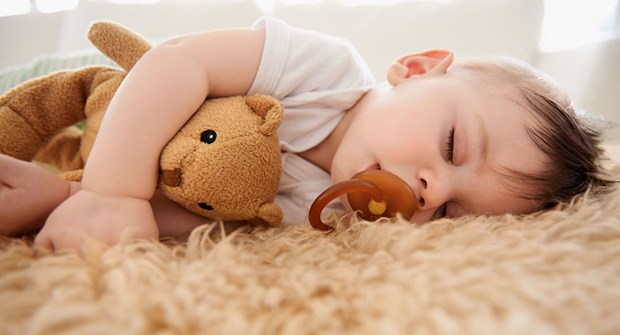Five Urban Sleep Legends Busted

A child development specialist shares her top tips!
By Practical Parenting
November 21 2016
Sleep – or should we say lack thereof – is one of the biggest concerns for parents around the world. Beth MacGregor, child development specialist and co-author of Helping Your Baby to Sleep: Why gentle techniques work best (Finch Publishing, $29.95) reveals her top five ’sleep myths’ in the hope that you and your baby will have a better night’s rest.
“BABIES SHOULD BE SLEEPING THROUGH THE NIGHT AT SIX MONTHS.”
It’s been proven that waking through the night well into the second year is common for babies. In fact, researchers have proved that it is common for babies and even some preschoolers to wake in the night and need their parents. Parents may believe babies or toddlers who wake up at night have a ’sleep problem’, however, waking is normal human behaviour.
“HELPING BABIES FALL ASLEEP MAKES THEM OVERLY DEPENDENT ON THEIR PARENTS.”
Decades of research about attachment actually shows us the opposite: responding consistently and warmly to babies and young children builds their inner-security and resilience. By comparison, inconsistently responding to little ones or ignoring distress could create insecurity.
“BABIES SHOULD BE PUTTING THEMSELVES TO SLEEP AT BEDTIME, WITHOUT ANY HELP OR SLEEP AIDS.”
Babies are reliant on help when it’s time for sleep for myriad reasons, including neurological immaturity, the emotional need for security, immature sleep mechanisms, and a reliance on adults for their regulation of emotional and biological states. Bubs often find movement and closeness soothing and calming.
“BABIES NEED TO BE TAUGHT TO ’SELF-SETTLE’ AS EARLY AS POSSIBLE.”
The capacity to self-settle comes when the child has been reliant on his or her parents to help become calm and is not something that easily happens over just a few nights. When self-regulating happens over and over and over again in the early years of life, the child forms the neurological wiring that allows for a regular and healthy self-soothing capacity.
“CO-SLEEPING CAN BE DANGEROUS AND IS DEFINITELY UNDESIRABLE.”
Many parents find that having a baby or young child in bed with them, or in close proximity, helps everyone get better sleep. Bed sharing has been shown to be dangerous under certain sleep conditions, such as on soft bedding or with a sedated parent. However, when the conditions are safe, millions of parents around the world sleep happily with their babies and small children every night.






